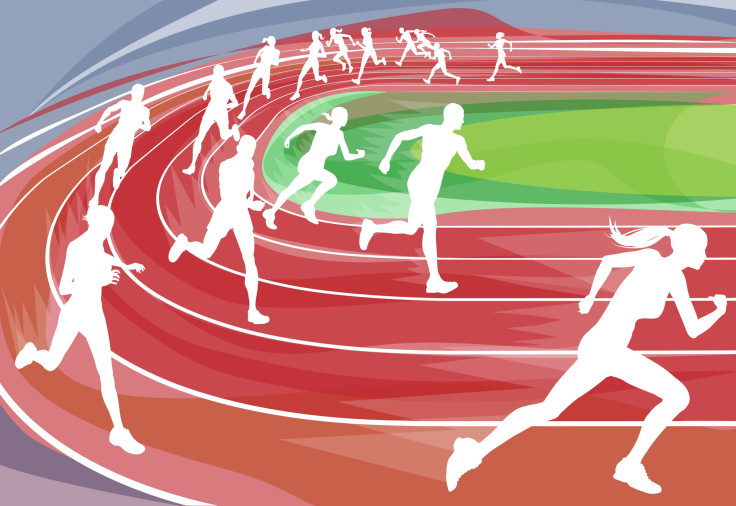Run Like A Girl: Women's Bodies And Minds Handle Marathons Better Than Men's

In the world of extreme sports, marathon running is a test that pushes painfully against the body’s physical and mental capacities. Less than one percent of all athletes complete marathons, and women are better at it than men. Danish researcher and marathon runner Jens Jakob Anderson and his team at Run Repeat examined over 1.8 million marathon results from 131 races over the last five years. After taking a look at the differences between genders and age groups, one thing was very apparent: Women were more energy-efficient runners than men across the board.
"I think it happens because we men tend to have an unrealistic idea of how good we are," Anderson told The Washington Post. "It applies to everything. Look into a mirror for men, and it'll be, 'I'm super fit and and strong.' And for women it'll be, 'Oh, I'm too fat.' Women are less risk-taking than men."
While women are better at maintaining a consistent pace throughout the marathon, men are much more likely to start out strong and have a sharper drop in their time. Marathon runners also chase after negative splits, which is running the second half of a race faster than the first half — something men will most likely not be able to do. They’re too exhausted, or it may be a blend of over-confidence and biology.
The advantageous male physique already allows them to push their bodies past most places that females can. "Although men are faster marathon runners than women (due to genetics), they are not the smartest," Anderson said. "Women are 18.63 percent better at pacing."
Run Like A Girl
Girls grow up in a world of physical inferiority. Whether they realize it in middle school gym class or when wrestling the remote from their little brother’s hands, it’s a fact of basic physiology. Men are innately designed to build muscle as women are carefully equipped to carry a baby inside their body for nine months. Even though we’ve evolved into a society where hunting has no longer forced men into peak physique, the natural ability to gain muscle still exceeds a woman’s. (Despite the fact America’s struggling through a life-threatening obesity epidemic, in which one-third of the nation’s body mass index is clinically obese).
Marathons are considered exercise at levels of “submaximal intensity,” and in such physical strains women will most likely typically burn a higher percentage of fat than men, because they have more fat storages to burn. They’re less likely to “bonk” or hit the metaphorical “wall,” which is a state of exhaustion when glycogen storages are deplete and glucose levels drop so low the body begins to slow down. It’s every runner’s nightmare, and men are more susceptible to it than women.
But just as girls grow up learning they can’t beat the school bus bully in an arm wrestling contest, boys just as quickly learn their upper hand. When it goes to their head, it can make them overambitious in an unrealistic way. A man’s ego puts more pep in his step, but it ends up costing him in the end.
“An explanation to this might be that men have a higher ego and believe maybe a bit too much in themselves (at least I see that pattern with myself),” Anderson told Medical Daily in an email.
Anderson recommends runners, both men and women, to use heart rate monitors while training at their goal paces in order to watch their fitness progression unfold through numbers. Men, on the other hand, are barred in terms of the biological ability to store fat like women, but they can carb load enough to store enough fuel for the race. They can also stop acting so cavalier, and learn to pace with a modest and restrained stride.
“It would make running more fun because you would have more success, and more success makes you run more, [which] makes you a healthier nation,” he said.



























